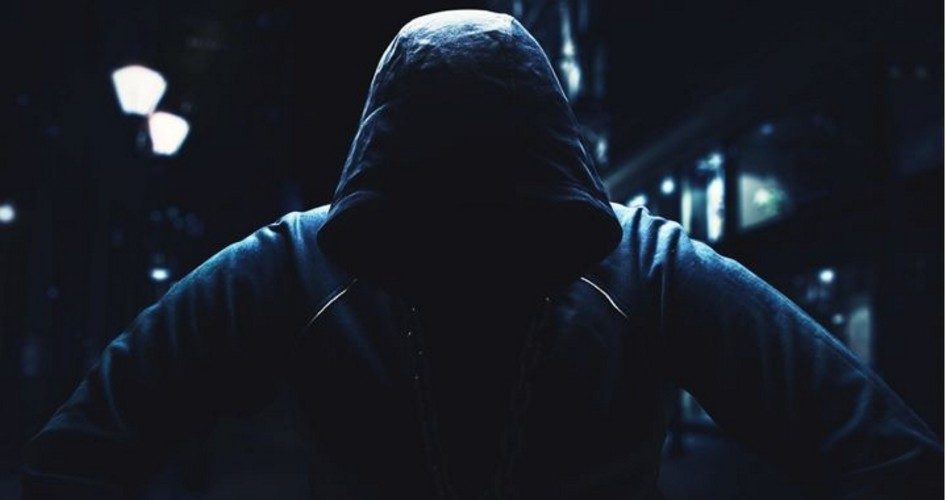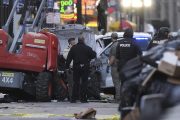
“Decades of progress made in bringing down crime are now being reversed by this administration’s rollback of criminal enforcement,” Republican nominee Donald Trump told the Republican National Convention and a national TV audience, in accepting the party’s nomination.
“Homicides last year increased by 17 percent in America’s 50 largest cities. That’s the largest increase in 25 years. In our nation’s capital, killings have risen by 50 percent. They are up nearly 60 percent in nearby Baltimore,” Trump continued, adding, “In the President’s hometown of Chicago, more than 2,000 have been the victims of shootings this year alone. And more than 3,600 have been killed in the Chicago area since he took office.”
New statistics released by the Major Cities Chief’s Association confirm the dark picture painted by Trump. The midyear violent crime survey that the association released this week shows that homicides are up 307 in 2016. The data is compiled from 51 law-enforcement agencies from some of the largest U.S. cities.
“The most basic duty of government is to defend the lives of its own citizens. Any government that fails to do so is a government unworthy to lead,” Trump said.
The recent assassinations of police officers in Dallas and Baton Rouge are examples of a national trend. As Trump noted, “The number of police officers killed in the line of duty has risen by almost 50 percent compared to this point last year.”
And it is not just murders of private citizens and police officers. The United States has seen a spike in robberies — up more than 1,000. The only category of violent crime not up in numbers is rape.
The Major Cities Chief’s Association (MCCA) includes police chiefs and sheriffs from the 68 largest law-enforcement offices in the United States. It was created to concentrate on crime issues in the nation’s largest urban areas.
President Barack Obama, however, disputed Trump’s analysis. “This idea that American is somehow on the verge of collapse, this vision of violence and chaos everywhere, doesn’t really jibe with the experience of most people,” Obama said during a joint press conference with Mexico’s President Enrique Pena Nieto in the East Room of the White House. Obama conceded that “we’ve seen an uptick in murders and violent crime in some cities this year, the fact of the matter is that the murder rate today, the violence rate today is far lower than it was when Ronald Reagan was president and lower than when I took office.”
But the statistics demonstrate that the drop in violent crime since the peak of the 1990s has reversed itself during the Obama years. For example, Dallas has seen an increase in homicides from 26 last year during the first quarter to 45 in the first quarter of this year. Las Vegas has suffered an increase from 22 to 40. And in Obama’s hometown of Chicago, the MCCA statistics record an increase from 83 to 141. Los Angeles police have reported an increase in homicides from 55 to 73.
The statistics are also grim when it comes to robbery. In Chicago, the number of robberies has jumped from 1,872 to 2,537. Similar results are included in the survey from Los Angeles — with an increase from 2,050 to 2,404.
Overall, homicides jumped 15 percent in the 51 largest cities that submitted crime data.
Darrel Stephens, executive director of the MCCA, cautioned that it is “going to take a bit more to say this [downward] trend of 20 years is being reversed.”
What could be responsible for this increase in violent crime, after a generation of decline? And what should be our response to this decline?
The verbal attacks upon the police emanating from the Obama administration — from Obama’s comment that police in Cambridge, Massachusetts, “acted stupidly” to the investigation by the Justice Department into the Ferguson, Missouri police department — have been blamed for creating a lawless environment in the country. Some have termed this the “Ferguson Effect.” This theory holds that the increase in violent crime can be blamed on police officers’ desire to avoid confrontations that could lead to racially charged protests.
In Ferguson, Missouri, white officer Darren Wilson shot and killed an unarmed black man, Michael Brown, during a confrontation. This led to protests, in which Wilson was accused of shooting Brown while he had his hands up, surrendering. Even after a grand jury interviewed scores of witnesses, mostly black, and concluded that Brown had attacked Wilson, and was certainly not surrendering with his hands up, this is the narrative that continues to be promoted by groups such as Black Lives Matter.
What police officer wants to be the next Darren Wilson, held up as a murderer, his life threatened, and his career in law enforcement terminated — for just doing his job? Despite Wilson’s innocence in the incident with Michael Brown, there will always be those who believe that he “got away with murder.”
The Obama Justice Department opted to investigate the Ferguson police department in what was essentially a “fishing expedition,” in an attempt to discover what, if anything, that department has done wrong. Certainly the Obama Justice Department could cite no “probable cause” for its investigation.
Stephens disagreed with the theory that police are “holding back” in potential confrontations, thus allowing violent crime to flourish. “Even if they’re angry or annoyed at times, they’ll still do the work they’re supposed to do,” Stephens said of local police officers. But a criminologist from the University of Missouri-St. Louis, Richard Rosenfeld, disagrees with Stephens, arguing that the “Ferguson Effect” is a “plausible” explanation for the spike in homicides in the past several months. Rosenfeld also believes that the events in Ferguson have “activated longstanding grievances” in minority communities.
Of course, false narratives such as the lie of “hands up, don’t shoot,” advanced by high-ranking government officials and the mainstream media have thrown gasoline on the fire of those grievances.
“We will also be a country of law and order,” Trump insisted in his acceptance speech. “I have a message for all of you: the crime and violence that today afflicts our nation will soon come to an end. Beginning on January 20th, 2017, safety will be restored.”
Certainly, the protection of its citizens from criminals is a principal responsibility of government, as Trump contends. However, this is not the primary responsibility of the president of the United States, nor anyone else in the federal government. The general police power was reserved in our federal system of government for the states and local government. And while we should support the work of local police, we do not want to swing too far in the other direction, and ignore basic civil liberties and due process of law.
What any president can do in regard to law enforcement is to leave this function in the hands of state and local authorities, where the Constitution left it. Undermining the work of the police throughout the country by irresponsible comments from the White House and harassment of police departments by the Justice Department should stop.
Certainly, having a president who refrains from condemning local police as “acting stupidly” is a good place to start.



